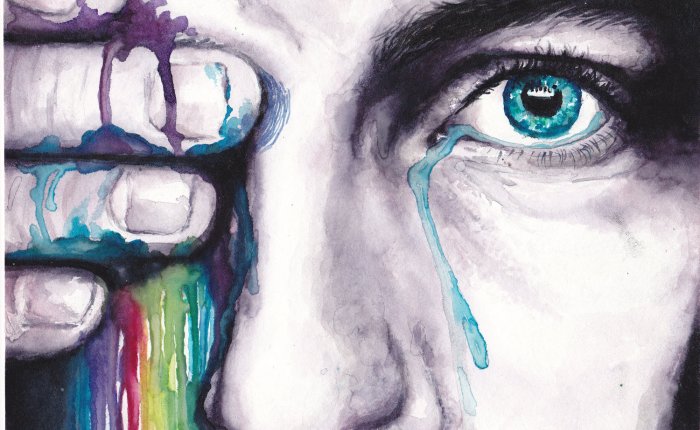For a long time now I’ve been convinced that depression is an integral part of who I am; that it has been wired into my system from the get-go and as such will always be an aspect of my identity. I mean, what else do you call it when you feel so alone and empty inside that you consider killing yourself on a regular basis? But now I’m starting to wonder if it was ever as simple as that. Not because my feelings in the past (and occasionally still in the present) no longer bear any weight or meaning, because they most definitely still do, but because I’m starting to wonder if maybe I’ve been looking at it the wrong way. It’s not that I didn’t feel (or continue to feel) depressed; it’s that I’m beginning to think there’s more to it.
A little bit confusing, but hear me out. I think a big part of what I was feeling was situational depression. Now, I’m not a doctor or anything so I’m not entirely sure how much of this is factually correct, but here’s what I think: I suspect that in the beginning my depression came about as a result of long-suppressed feelings from my childhood bubbling to the surface over time.
I went through a lot as a kid. Growing up a cancer patient, and then survivor, is a lot to process. Not knowing how to extensively communicate these feelings of confusion and anger and pain, my subconscious mind instead chose to suppress them. Questions like “why me?” and “why anyone?” and even just “why?” were never asked, and never answered.
And when we don’t understand something, when we feel confused and frightened and alone, we develop insecurities. These insecurities latched onto and fed off of my preexisting character traits, twisting and warping them into darker and more extreme versions of themselves. My shyness became social anxiety, my social anxiety became self-doubt, and my self-doubt became self-hatred. My imaginative mind became a mess of overthinking and over-analyzing, and combined with the self-hatred it had me constantly second-guessing myself. My introversion became asociality, which occasionally gave way to misanthropy. My love for stories and fiction turned me into a hopeless, melodramatic romantic, one who would never find the solace of his stories out in the real world, and as a result would constantly feel disenchanted by and disassociated from reality.
And, as would be expected when faced with negativity every which way I turned, I became depressed.
See, I wasn’t naturally inclined or predisposed to depression. I was just a very, very sensitive and emotionally vulnerable person. And when you put someone like that through a blender, they tend to come out a little beaten up.
It’s one thing to feel sad and upset about having a spinal cord tumor and kyphosis; those are perfectly normal and rational feelings. But take those feelings and multiply them by about a thousand, and the resulting mental state is catastrophic. Whatever regular feelings I’d had about my condition were drastically compounded by my severe emotional acuity. And if you’re wondering, the answer is yes: that is just a dressed up way of saying I’m a crybaby.
What I figure happened eventually was that my situational depression, the depression I felt as a result of my- well, my situation, became such a normal and constant aspect of my life that it festered into clinical depression. And when that happened all bets were off.
So even now that I’m starting to deal with my past, sorting through the feelings I never had a chance to address and asking the questions I never had a chance to ask, I’m still left with clinical depression, not to mention the echoes of situational. And of course I’m still extremely sensitive, which means that whatever mood I’m in is multiplied tenfold.
But I still have my good days, when the beauty I see and feel is so powerful and incredible that I can’t help but cry. That’s the payoff to being so emotionally astute; when you feel good, you feel euphoric. And with that arrangement maybe I can live through the bad days by living for the good ones.
